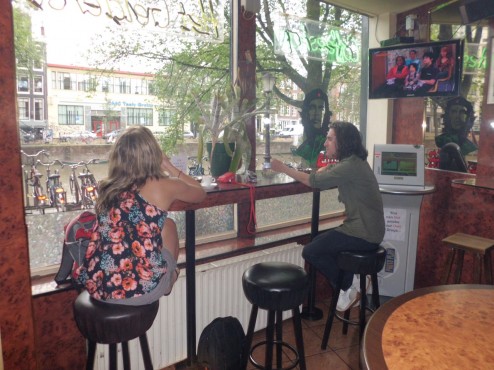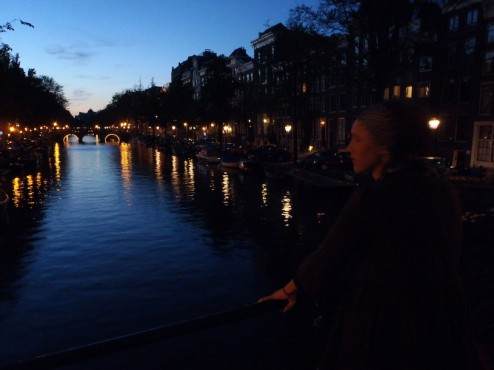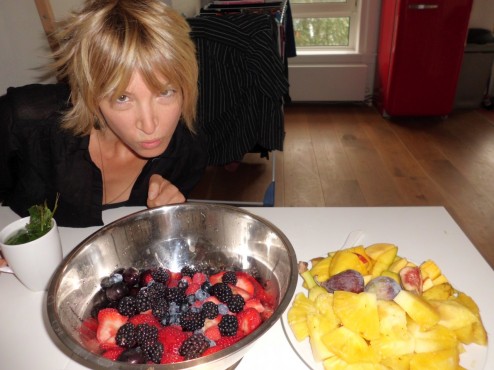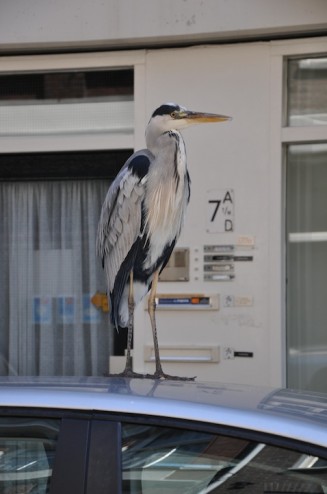“No single life story is pure tragedy or pure comedy. Rather, there are narrative mixes.” [1] I don’t know about yours, but that’s certainly true for mine.
Aristotle, a Greek philosopher of the 4th century BC, wrote in Poetics that tragedies are enactments whereby human suffering brings about the audience’s pleasure, or a catharsis – a purging of emotions – through the pity and fear felt during a tragedy that relieves the audience of such emotions.
When I embarked on what turned into quite an epic journey in Europe, I wasn’t expecting it to end in tragedy. I don’t know if telling this story will bring about your pity or fear, and hence relieve you of such emotions in your own life. But it’s a story that, in order to give continuity to this blog, and in a way purge myself of my own such emotions, I wish to tell.
The journey that the last five weeks of entries has followed had its beginning six months ago when Lisa, my best friend from high school, said to me, “anywhere you wanna go, whenever you wanna go, I’ll come.”
I was 28, entering my “Saturn Returns”, re-evaluating my life as I began to “enter the next phase of life”, so astronomers say happens every 28-30 years. What would that next stage be? I didn’t know then, I still don’t.
For some reason I thought discovering Western civilisation’s roots in Rome and Greece would help. So rather than going back to South America, we went to Europe.
Things didn’t exactly turn out how I thought it would. I guess things rarely do.
No lightbulbs went on while I was Rome or Greece. I had a cold in Rome. I had an accident in Greece. I experienced my own epics and tragedies. I read Plato. I saw the lands of Homer’s Iliad and Odyssey. I absorbed the history of life in Pompei. I remembered the role Ancient Greece and Rome in the evolution of our society. I was surprised by the smelly state of Naples. I was blown away by the beauty of the Greek islands – well at least the one island I got to see. And I missed out on seeing Athens.
ROME:
 The Forum – where “all paths lead”. It was outside Rome’s walls, where most of the trading went on.
The Forum – where “all paths lead”. It was outside Rome’s walls, where most of the trading went on.
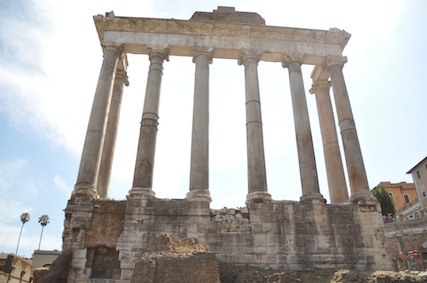
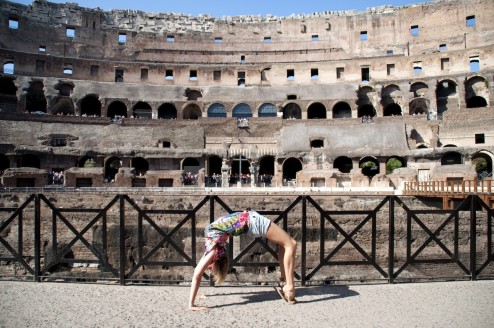 The Colosseum – stories of various forms of (largely violent) “entertainment” of our ancestors
The Colosseum – stories of various forms of (largely violent) “entertainment” of our ancestors
NAPLES:
 Imagine this on EVERY corner!
Imagine this on EVERY corner!
A problem with the mafia/government/rubbish industry… apparently “there is no more space in the landfills” and no end to the garbage accumulation is yet in sight.
POMPEII:
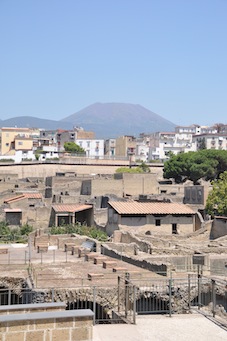
The layers of history, with the present in the middle and nature reigning on top. Another world, an ancient world, buried underground. The Roman underground is a mess because they keep digging and hitting more ruins. What will lie on top of our layer one day?
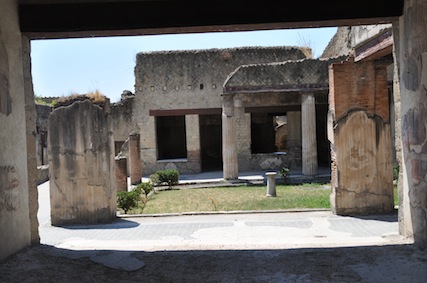 One of the richer dude at the time’s courtyard.
One of the richer dude at the time’s courtyard.
The detail of preservation was incredible. Wall carvings and hangings, full building structures, contents of inside the structures. All of it more than 2000 years old!!!
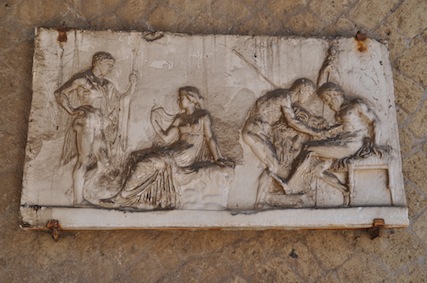 One of many wall hangings.
One of many wall hangings.
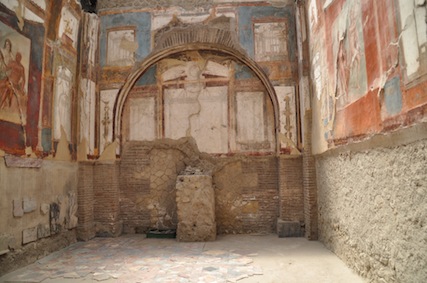
I doubt any of the paintings on our walls would last a volcanic eruption and 2000 years of decay.
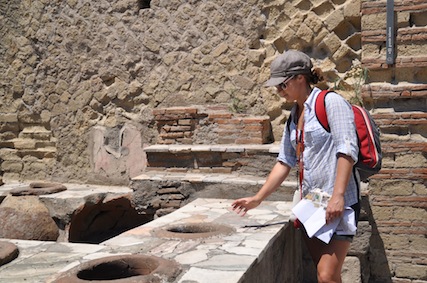 Where drinks were served. Lisa accepting her ancient beer.
Where drinks were served. Lisa accepting her ancient beer.
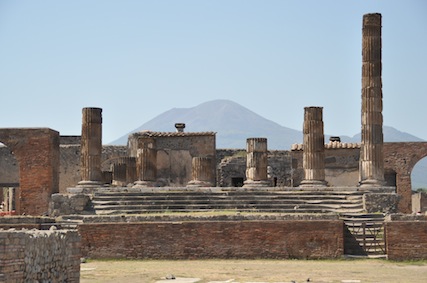 Mt Vesuvius. I can’t believe I got this shot with no people in it! It’s so much like the picture of the picture I took as I entered the grounds:
Mt Vesuvius. I can’t believe I got this shot with no people in it! It’s so much like the picture of the picture I took as I entered the grounds:
 I just wished I’d acted fast enough to get a backbend shot here. One second later it people were everywhere again.
I just wished I’d acted fast enough to get a backbend shot here. One second later it people were everywhere again.
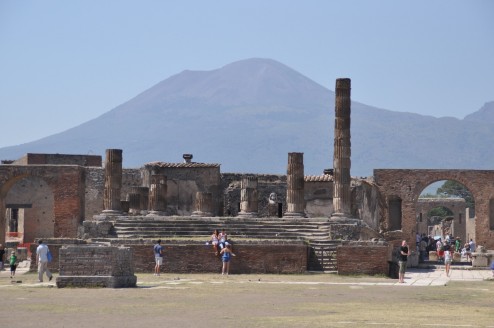
Mt Vesuvius is pretty impressive hey… and the only volcano in Europe to have erupted in the last 100 years. No one seems worried about it erupting again thought – short-termed minds that say “it won’t happen to me.“
That’s what I said before I got on the scooter in Greece..
 A typical street
A typical street

What’s your address?
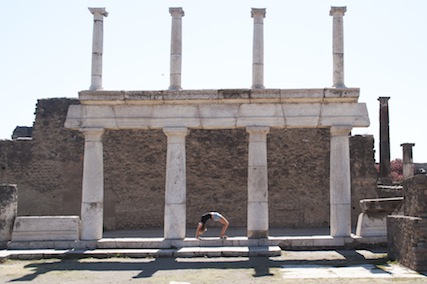 Cause I had to.
Cause I had to.
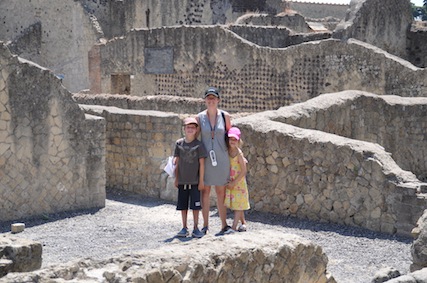
A family whose camera ran out of battery and so they asked me to take this. I’m still waiting for them to email me for the photo – if this is you, send me an email!
BACK IN ROME:
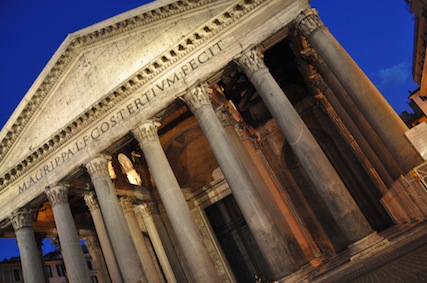
The Pantheon – a temple for all (pan) the Roman gods… given my love of panentheism… while it’s not the same philosophy, the overlap in Latin root and the idea of worshiping all the mythological gods, made me smile.
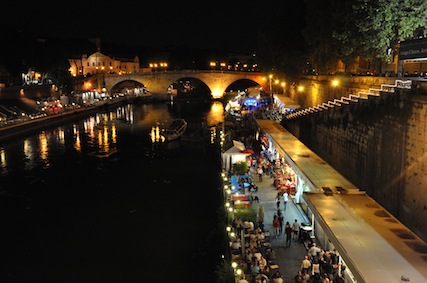
Restaurants and markets
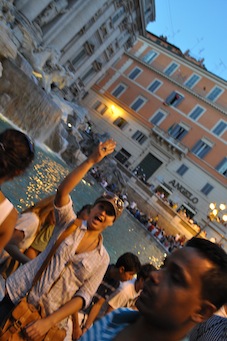 Lisa threw a coin into Trevi Fountain… apparently that means she’ll return to Rome one day.
Lisa threw a coin into Trevi Fountain… apparently that means she’ll return to Rome one day.
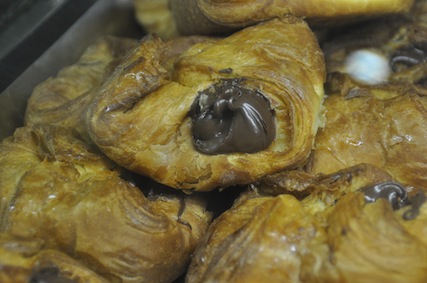 Breakfast. As they say, “When in Rome…’ and according to Pier, a Roman boy whose couch we surfed on, nutella-filled croissants is “what Romans do.” Ok by me.
Breakfast. As they say, “When in Rome…’ and according to Pier, a Roman boy whose couch we surfed on, nutella-filled croissants is “what Romans do.” Ok by me.
THE VATICAN:
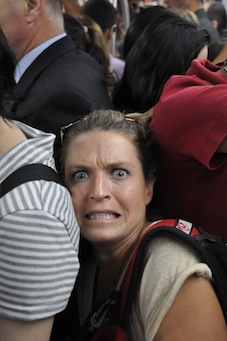 The underground. Are we Rome, or Tokyo?
The underground. Are we Rome, or Tokyo?
 I doubt you have EVER seen a line as long as this – to enter the smallest country in the world.
I doubt you have EVER seen a line as long as this – to enter the smallest country in the world.
We got there early and waited in a different line with a British tour guide who amused us for a while… but we had a flight to catch. Our visit to The Vatican was pretty much a poke-your-head-in each room. Say “oooooh”. And visit the next room.
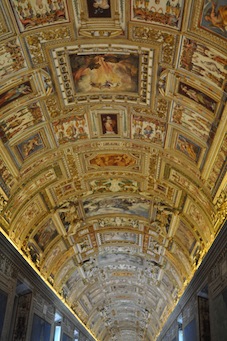 The ceiling of the Vatican Museum hallway. Ooooooh.
The ceiling of the Vatican Museum hallway. Ooooooh.
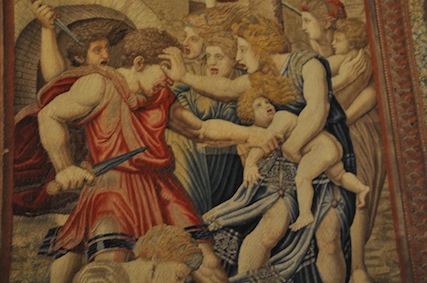 Killing of woman and babies…
Killing of woman and babies…
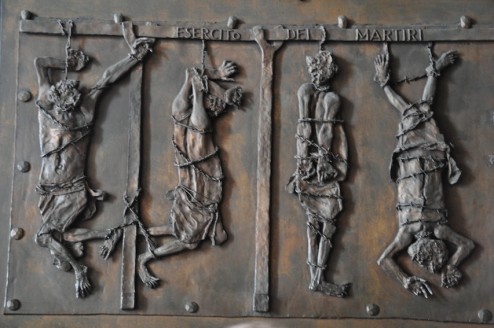 Hanging of dudes on the back of the door to St Peter’s Cathedral?
Hanging of dudes on the back of the door to St Peter’s Cathedral?
Why are these in the Vatican? By this time we’d left the tour group so I guess I’ll never know.
TRANSIT:
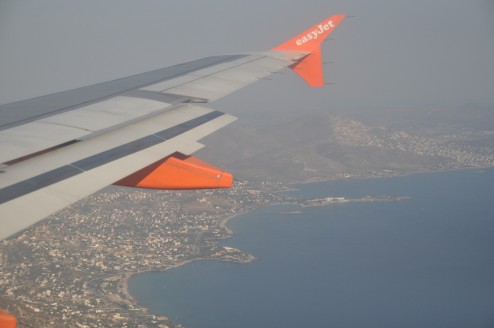
Arriving in Athens
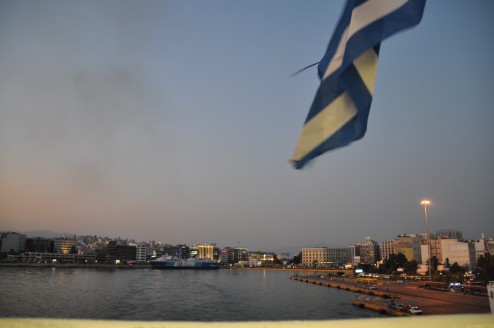 Relief as after Easy Jet delays and a longer train ride than expected, we made it to our boat just by the chin on our chinny chin chins.
Relief as after Easy Jet delays and a longer train ride than expected, we made it to our boat just by the chin on our chinny chin chins.
PAROS, GREECE:
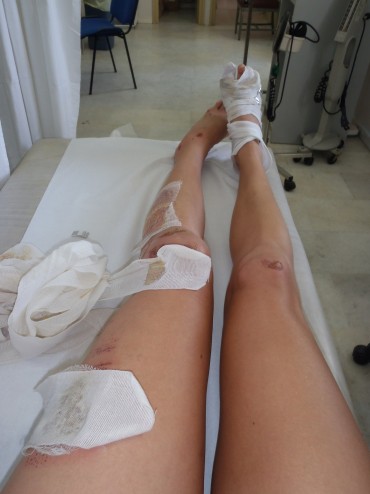
I took this shot two days after the accident. If I put a close-up on here, you would throw up.
On my first day, my first hour on the little 50cc moped, the front wheel slipped or locked (not sure how the heck it happened but a little oil was found on the wheel, so maybe that) and in the blink of an eye I found myself sliding across the gravel thinking “this isn’t happening” “this isn’t happening” “yes this is actually happening” “it’s happening” “you’re losing your skin” “why did you risk it” “where is your leather?” “you were warned about this in Sydney” “f**k f**k f**k”… “you’re still conscious” “you’re alive”.
A car stopped from one direction, a dude looked out his window. “What do you want me to do?” he said, looking at the road I was blocking.
“Ah, HELP?”
Another car stopped behind him. Another coming the other direction. A family rushed out. “Are you ok?” “Be careful.” “Can you move your neck?” “Can you move your arms?” “Can you stand?”
“I think I’m ok.” I said calmly. “Is there a hospital on this island? A hospital? Can you take me there please?” I held my gaze away from my body. I didn’t want to see. But I was conscious. I was alive. I was ok.
“Of course. Come.” The father put one of my arm around his and his wife’s shoulders. The girls in the car moved across. I sat. After a few moments I looked down. Only when I saw what I’d done did I feel woosy. My head spun, everything went black.
When I opened my eyes I was in a hospital bed experiencing the most intense pain I have ever experienced in my life. The nurse was cleaning the wounds and it HURT. It stung. I grasped the side of the bed. I seized up in agony. I bit my arm.
When it was over they wrapped me up in bandages and sent me on my way.
The good news is that now, two weeks later, they have healed very well. I have to keep out of the sun for a while, which sucks, but apparently if I do I might not have scarring at all.
I know how lucky I am. Lesson #1: wear protective gear. Lesson #2, reinforced by random man on the street who looked at me walking past and said in a stern voice over and over again, “No more scooters. No more scooters.” Maybe I will ask my mum to sell my scooter in Oz, before I’m tempted to get back on.
I had a motorcycle accident in Brazil. Now one in Greece. Third times a charm, right?
In Nepal I was lucky (I didn’t even wear a helmet there). And no accidents in Sydney (where I was pretty much always covered head to toe in gear). I’ve been lucky not to have done irreversible harm in either case. I don’t think I’ll give fate a chance to kill me off just yet.. Well not on a scooter…
Three days later, seemingly to make sure I really truly had learned my lesson when it comes to riding crappy vehicles on dangerous roads, we rented a dune-buggy to drive around the island.
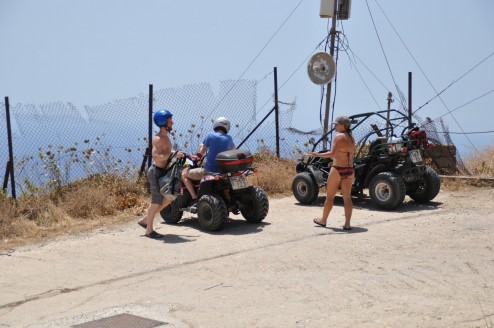
Lisa wanted to show me some of the cool parts of Paros that I hadn’t been able to get to. In theory it was a good idea. In reality driving the rickety old contraption up thin windy dirt roads on the edge of ridiculously high cliffs to the top look-out point, with little more protection than the scooter that had f*d me up… traumatised me almost as much as my accident.
Lisa unbuckled her belt “just in case”… I looked at my immobile legs. Belt or not, if we go over the cliff, I’m doomed. All it would take is the unserviced contraption to fail. In a flash we could be tumbling over the rocks. Visions of it ran though my mind. My heart beat fast. I felt nauseous. Cars came the other way. I beeped the horn as if I was in India. I was pretty sure my time was up. Life was going to be over any minute now… I tried to accept it. I prayed the entire way up and the entire way down. Maybe in a parallel universe I died here. I felt the energy of death penetrate my being.
The buggy did break down. But not up the top of a cliff. It didn’t send us flying into oncoming traffic. It just gracefully lost power and the rental company had to pick us up.
Besides that day of excitement, my days on Paros were very chilled.
 Most of my days from here on were spent sipping “espresso freddo” and feeling sorry for myself.
Most of my days from here on were spent sipping “espresso freddo” and feeling sorry for myself.
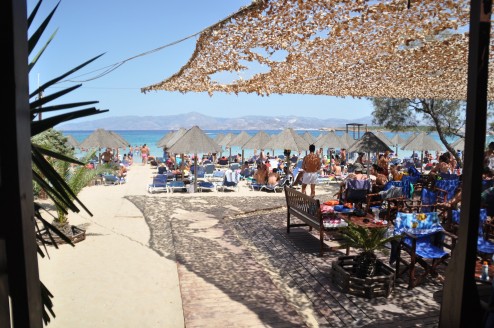 I would look up and see this kind of view.
I would look up and see this kind of view.
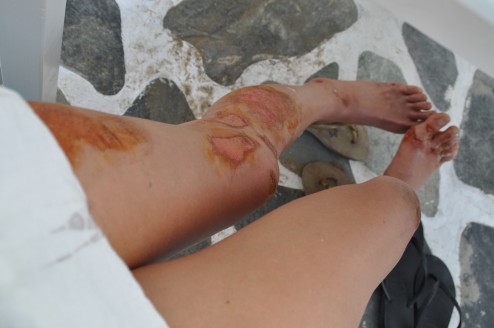
Then I’d look down and see this.
After Lisa went home I found myself in the most asocial mood I’ve ever been in. I got invited to dinners and parties, but all I wanted to do was sit in front of my computer. Only problem: my computer had died in Rome. So I spent a week and a half skyping through my phone, reading my new Kindle (that I’d ordered in Nice and had delivered to Greece) when I had the energy. I spent 1 euro for every 15 minutes it took for me to fix up a chapter that is to be published in an collaborative book on Peace Tourism, and even then couldn’t finish it because every computer in Paros seemed to have keys or Word or something missing.
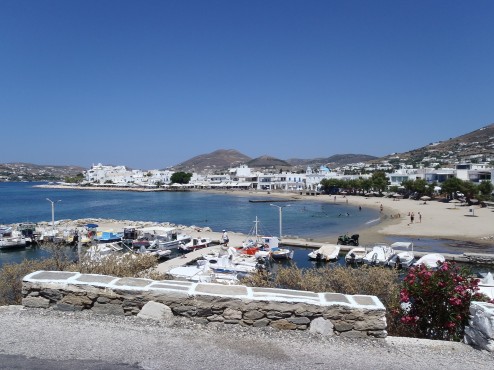 I should have been happy given the beautiful location I was in to recover.
I should have been happy given the beautiful location I was in to recover.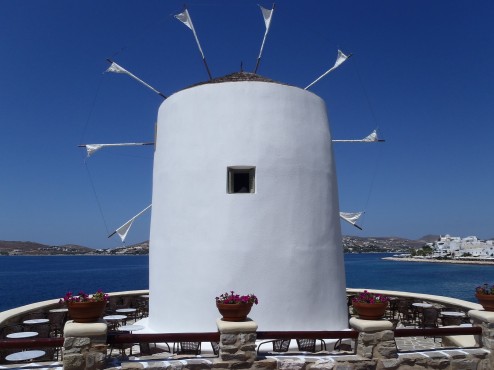
All I could think about was going home, but my next flight was not to bring me home. I was scheduled to fly from Athens to North Carolina in the USA – where I was supposed to be teaching for the semester.
Everyone gave me different advice. I wanted to do everything I could to prevent or minimise the scaring. Days on end my head debated with itself: what creams to use (I think I bought one of everything in the pharmacy), which doctor to believe (the cute one in the public hospital, the older one in the private clinic, or the canadian doctor in the cafe), whether to forget the USA and go home, to spend the next few weeks in Greece or try to push on to Turkey… I entertained every alternative.
Then in a swift awakening of my spontaneous side. One morning I had a brainwave: forget struggling with my bags through Turkey, leave my growing depressive state behind in Greece, change my flight dates – go to the US early. I could see a doctor there, make sure I felt ok to stay there for the next 5 months, and if not, fly to Sydney from there. Thanks to the encouragement of Regis, a Frenchman who insisted I be at least a little bit social, during my few hours on Paros I managed to pose for this photo:
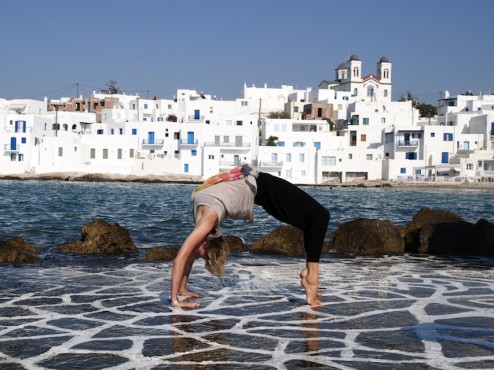
And at 8pm embark on a 4 hour boat ride followed by a 1 hour bus ride, 3 hours on an airport floor, a 1.5 hour flight to Munich, a 2 hour lay-over, and a further 9 hours of back-to-back movies on a new two-level airplane. And at the end of something like a 48 hours sleepless journey, I arrived in Hickory – a tiny town in NC. And, well, already lots to tell… some other time.
So all in all, while there were no lightbulbs, and while I experienced my own tragic and abrupt ending to my travels, surrounded by the beauty and history of these places I did feel the planting of some seeds. I felt my understanding of my place in the scheme of human history shift in some way. Hopefully over time these seeds will grow.
Recently my fortune cookie (yes, stories of food in American coming up) read, “Discontent is the first step in the progress of a nation or a man.”
While it seems to be more of a proverb than a fortune but maybe if I apply the proverb to my own discontent – with the end of my holiday coming to such an dramatic end, and I guess also my discontent with the destructive state of our world – maybe my fortune is that progress is on its way.
Reference:
[1] Dan P. McAdams, The Stories We Live By : Personal Myths and the Making of the Self (New York: Guilford Press, 1996). p. 53.
[2] Aristotle and Malcolm Heath, Poetics (London ; New York, N.Y.: Penguin Books, 1996).








































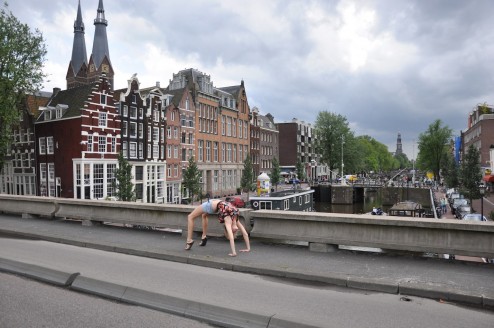 A bridge pose wasn’t much of a solution…
A bridge pose wasn’t much of a solution…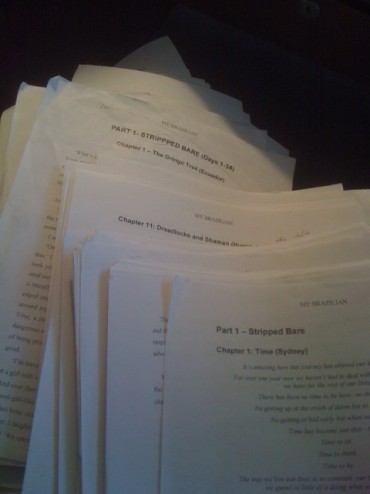
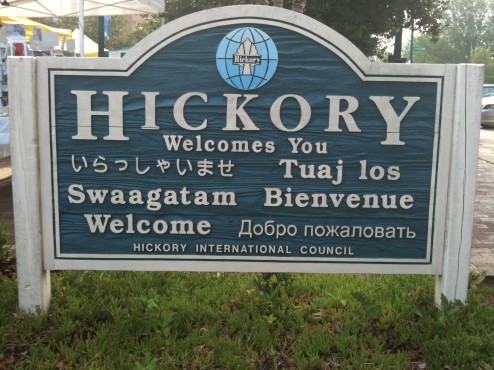
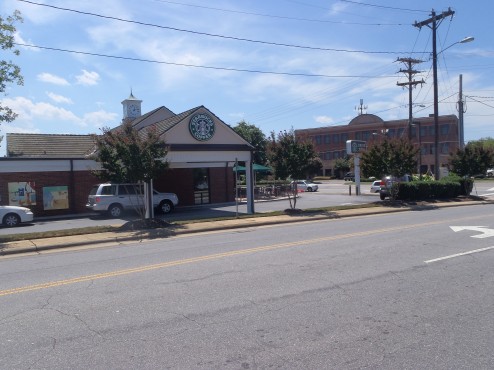
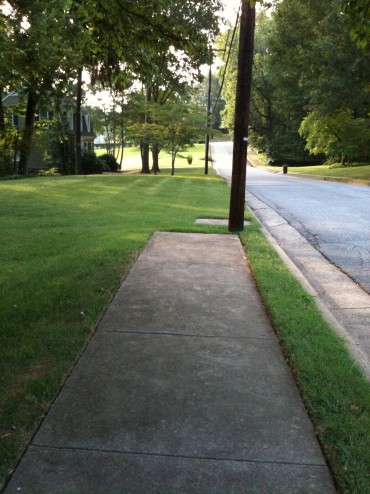
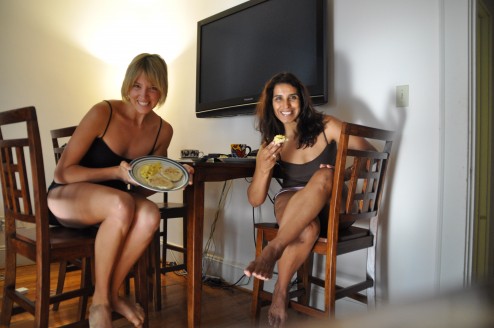
 The Forum – where “all paths lead”. It was outside Rome’s walls, where most of the trading went on.
The Forum – where “all paths lead”. It was outside Rome’s walls, where most of the trading went on.
 The Colosseum – stories of various forms of (largely violent) “entertainment” of our ancestors
The Colosseum – stories of various forms of (largely violent) “entertainment” of our ancestors Imagine this on EVERY corner!
Imagine this on EVERY corner!
 One of the richer dude at the time’s courtyard.
One of the richer dude at the time’s courtyard. One of many wall hangings.
One of many wall hangings.
 Where drinks were served. Lisa accepting her ancient beer.
Where drinks were served. Lisa accepting her ancient beer. Mt Vesuvius. I can’t believe I got this shot with no people in it! It’s so much like the picture of the picture I took as I entered the grounds:
Mt Vesuvius. I can’t believe I got this shot with no people in it! It’s so much like the picture of the picture I took as I entered the grounds: I just wished I’d acted fast enough to get a backbend shot here. One second later it people were everywhere again.
I just wished I’d acted fast enough to get a backbend shot here. One second later it people were everywhere again.
 A typical street
A typical street
 Cause I had to.
Cause I had to.


 Lisa threw a coin into Trevi Fountain… apparently that means she’ll return to Rome one day.
Lisa threw a coin into Trevi Fountain… apparently that means she’ll return to Rome one day. Breakfast. As they say, “When in Rome…’ and according to Pier, a Roman boy whose couch we surfed on, nutella-filled croissants is “what Romans do.” Ok by me.
Breakfast. As they say, “When in Rome…’ and according to Pier, a Roman boy whose couch we surfed on, nutella-filled croissants is “what Romans do.” Ok by me. The underground. Are we Rome, or Tokyo?
The underground. Are we Rome, or Tokyo? I doubt you have EVER seen a line as long as this – to enter the smallest country in the world.
I doubt you have EVER seen a line as long as this – to enter the smallest country in the world. The ceiling of the Vatican Museum hallway. Ooooooh.
The ceiling of the Vatican Museum hallway. Ooooooh. Killing of woman and babies…
Killing of woman and babies… Hanging of dudes on the back of the door to St Peter’s Cathedral?
Hanging of dudes on the back of the door to St Peter’s Cathedral?
 Relief as after Easy Jet delays and a longer train ride than expected, we made it to our boat just by the chin on our chinny chin chins.
Relief as after Easy Jet delays and a longer train ride than expected, we made it to our boat just by the chin on our chinny chin chins.

 Most of my days from here on were spent sipping “espresso freddo” and feeling sorry for myself.
Most of my days from here on were spent sipping “espresso freddo” and feeling sorry for myself. I would look up and see this kind of view.
I would look up and see this kind of view.
 I should have been happy given the beautiful location I was in to recover.
I should have been happy given the beautiful location I was in to recover.

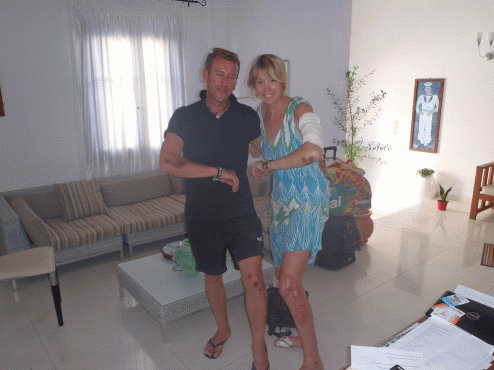 These last few weeks I disappeared in more ways than from this blog. I’ve tried to put my finger on how it happened. It happened so slowly that like a frog in hot water, I came to realise it only at boiling point. It was too late. Some essential part of my “self” had gone.
These last few weeks I disappeared in more ways than from this blog. I’ve tried to put my finger on how it happened. It happened so slowly that like a frog in hot water, I came to realise it only at boiling point. It was too late. Some essential part of my “self” had gone.
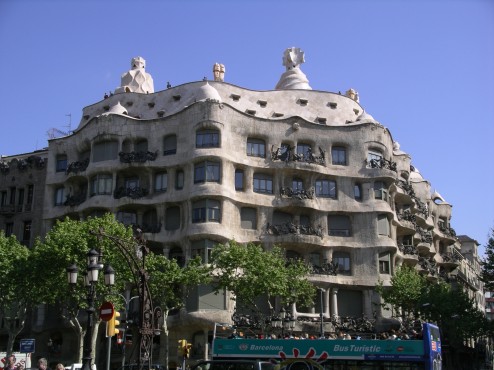
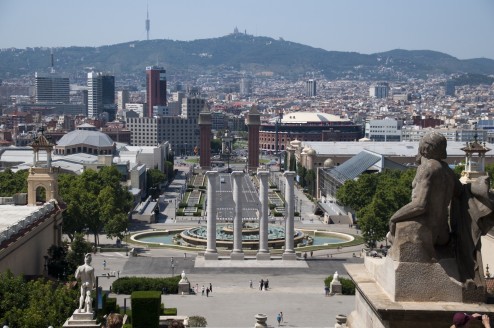
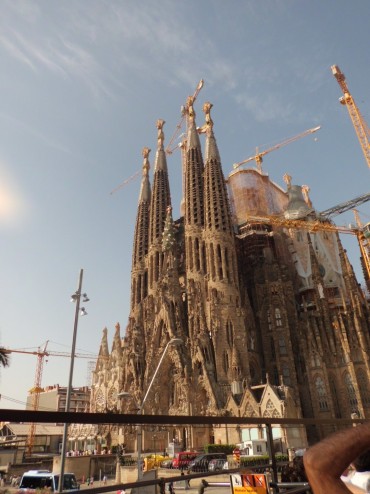

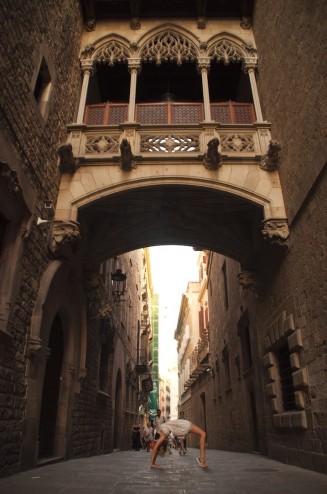
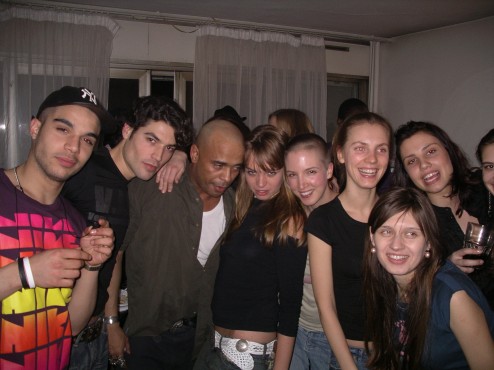
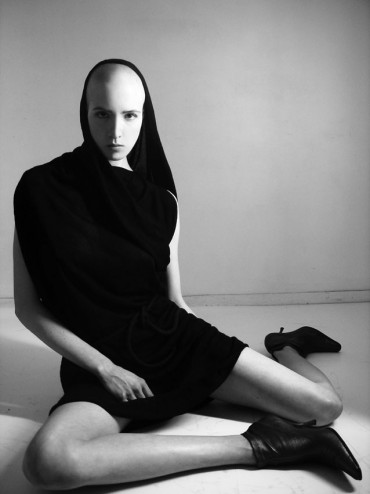
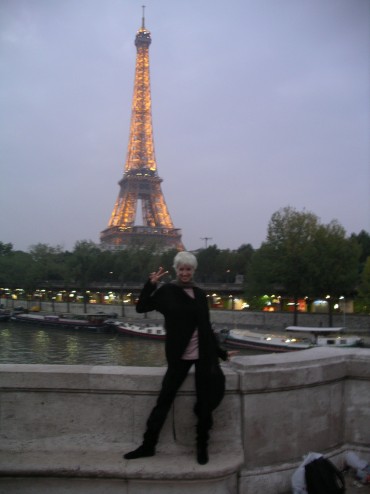
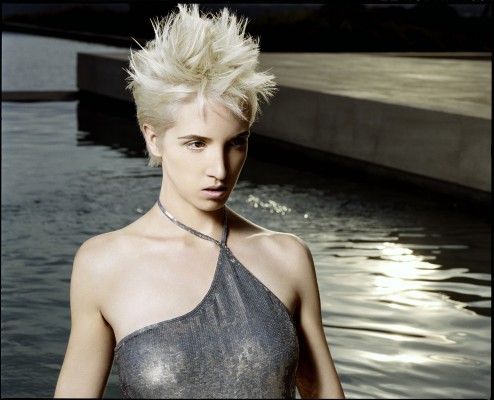
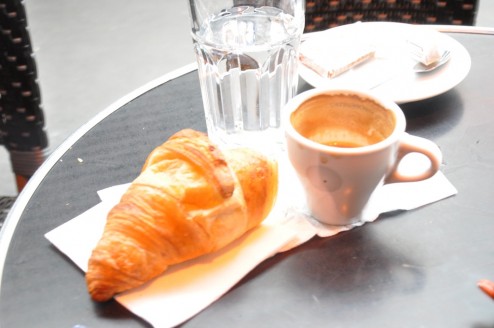
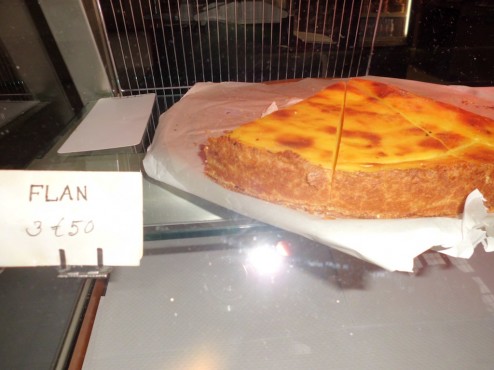
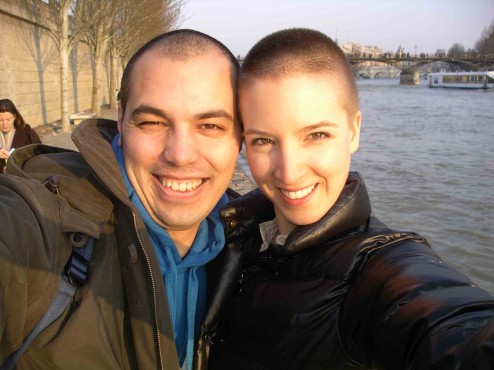
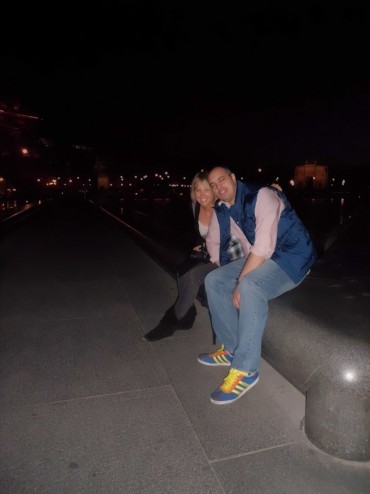
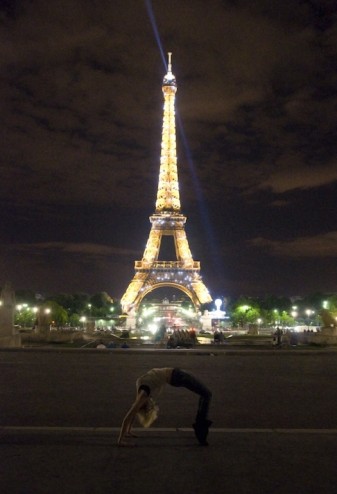

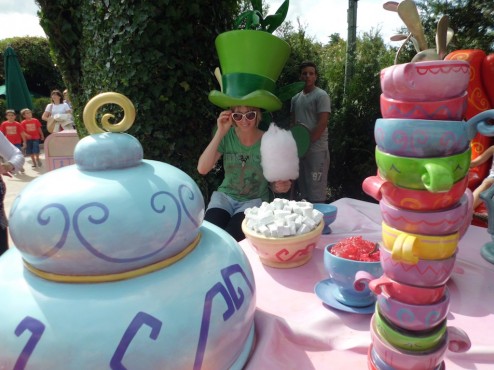
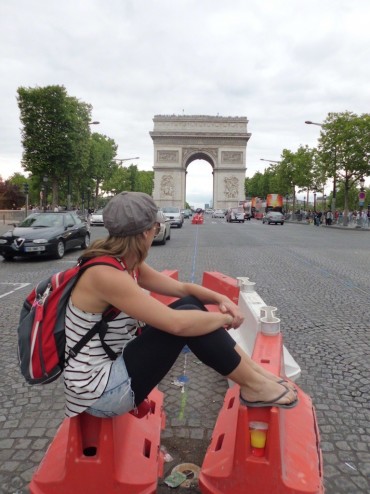
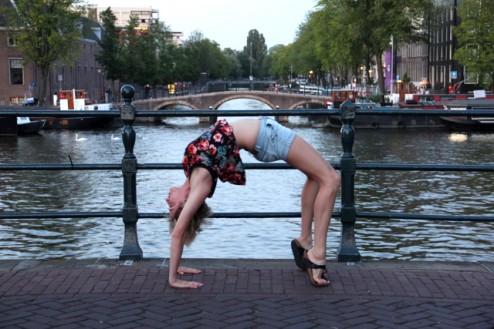 Amsterdam greeted us with wide-open arms. The sun was shining, the people smiling, “coffee shops” inviting.
Amsterdam greeted us with wide-open arms. The sun was shining, the people smiling, “coffee shops” inviting.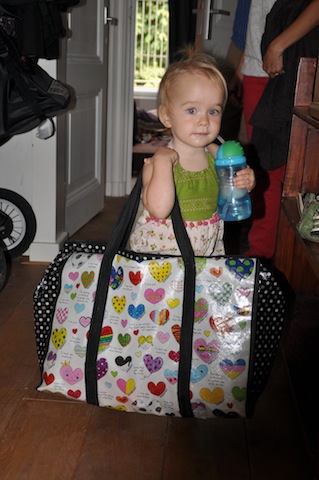
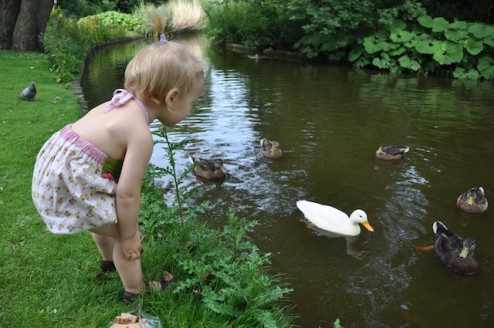 Feeding ducks
Feeding ducks
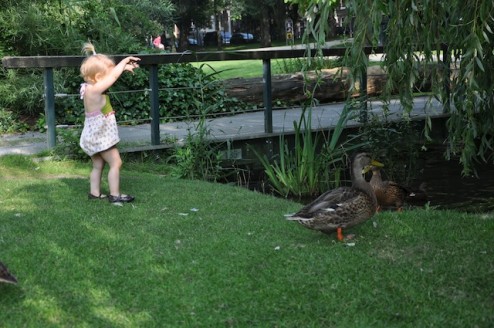 Roar!
Roar!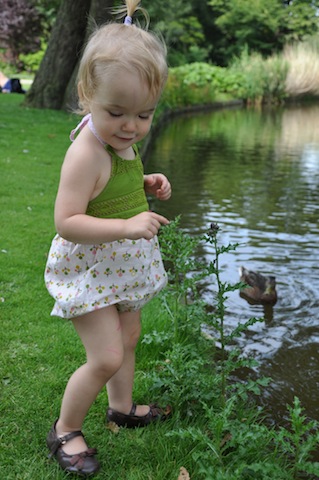
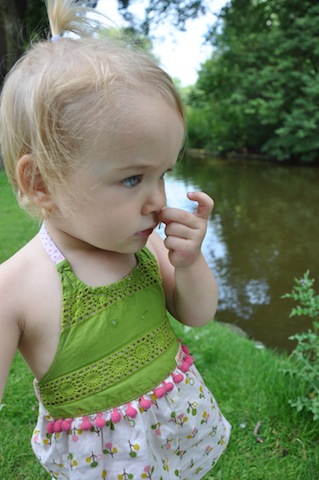 Smelling flowers
Smelling flowers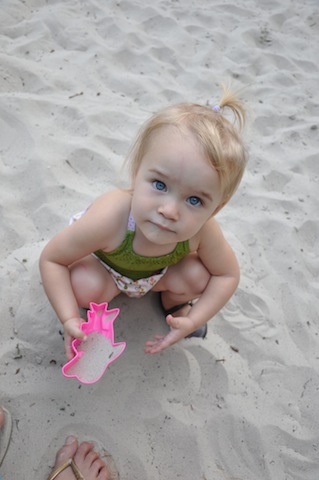 Playing in the sand
Playing in the sand
